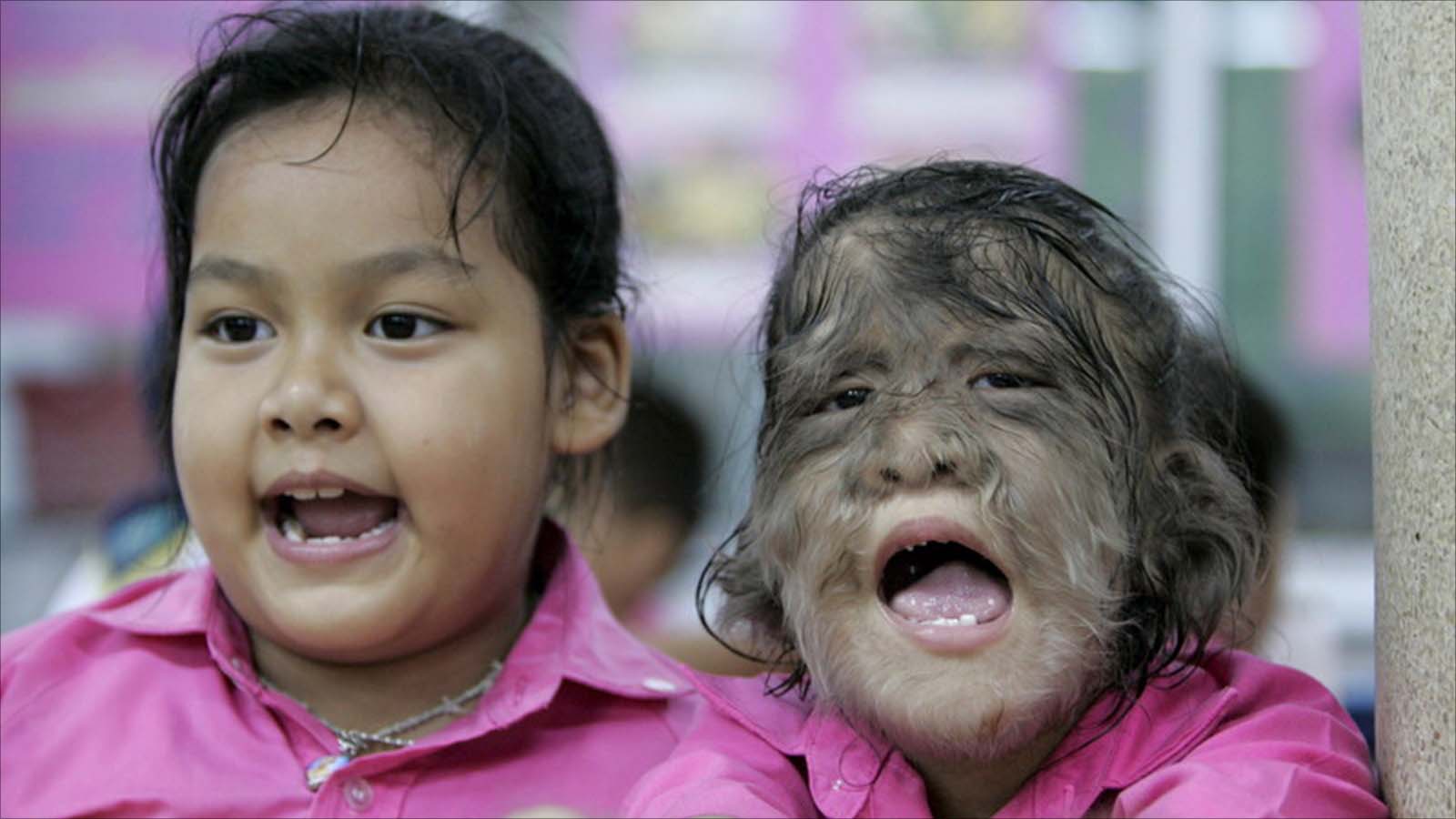A widely used balding treatment, utilized by millions of Americans, has recently been implicated in a series of alarming cases of "werewolf syndrome" among infants. This condition, medically known as hypertrichosis, is characterized by excessive hair growth on the body, and reports indicate that it has emerged in babies whose parents used a topical form of the medication minoxidil.
Minoxidil is an over-the-counter foam that is typically applied to the scalp to stimulate hair regrowth. However, recent findings from Spain have raised serious concerns. Since last year, nearly a dozen cases of this rare condition have been documented, with health officials tracing the issue back to the use of 5% topical minoxidil by the parents of affected infants.
According to a report from the Navarra Pharmacovigilance Center, 11 instances of hypertrichosis have been recorded throughout Spain. Researchers believe the condition may arise when infants come into contact with the drug shortly after their parents have applied it. This could occur through skin contact or ingestion, as the drug could potentially transfer to the infants via their parents' hands or skin.
In light of these incidents, the European Medicines Agency has advised updating labels on minoxidil products to warn about the risks associated with exposure for young children. The new guidance explicitly cautions that both parents and children should avoid ingesting the foam.
Currently, the FDA has not commented on the Spanish cases, nor has it issued new warnings regarding minoxidil. However, all 11 children affected by hypertrichosis experienced a regression of symptoms once they were no longer exposed to the drug.
The condition, also referred to as "werewolf syndrome," results in abnormal hair growth on various parts of the body, including the face, arms, and legs, with hair lengths reaching up to 5 centimeters. Unlike many other conditions, hypertrichosis has no definitive cure, requiring individuals to manage symptoms through shaving or waxing.
Concerns about minoxidil's effects began surfacing in April 2023 when health experts noticed a case involving a baby boy who developed excessive hair growth on his back and thighs over a couple of months. Upon investigation, it was revealed that the child's father had been using a 5% minoxidil lotion, which he applied to his scalp to treat his own hair loss.
Researchers suspect that the minoxidil may have been absorbed by the infants either through direct contact with the drug or ingestion. The active ingredient, minoxidil, is present in various popular hair loss treatments, including brands like Hims, Rogaine, and Keeps.
Before the recent surge in cases, fewer than 100 instances of hypertrichosis had been recorded since the Middle Ages. The alarming rise, particularly the 11 cases linked to minoxidil, has drawn attention from medical communities.
In one notable instance reported in 2023, a breastfeeding infant exhibited significant hair growth over two months. Health officials learned that the father had been applying minoxidil to his scalp. After ceasing the use of the drug, the child's symptoms improved dramatically.
Although minoxidil is generally considered safe, a previous case in France highlighted potential dangers when a child ingested a teaspoon of the product, resulting in severe health issues, including elevated heart rate and low blood pressure. Dr. Isabelle Claudet, a pediatric emergency specialist, noted that even small amounts can lead to significant health risks in children.
The emergence of hypertrichosis cases among infants in Spain has prompted health authorities to issue warnings regarding the safe use of minoxidil, especially around young children. Parents are advised to avoid contact with areas where the medication has been applied and to be cautious of any potential transfer of the drug to their children.
Furthermore, in a previous incident in 2019, at least 17 children in Spain developed hypertrichosis after mistakenly consuming a reflux medication that had been contaminated with minoxidil. This incident underscored the importance of proper labeling and distribution practices in pharmaceuticals.
As awareness of minoxidil's potential side effects grows, discussions around its use for non-approved applications, such as eyebrow enhancement, have also emerged. While some users have reported positive results, medical professionals caution against off-label usage due to the risk of adverse effects.
The rise in cases of 'werewolf syndrome' linked to minoxidil use underscores the need for increased awareness and caution among parents. Health experts continue to advocate for proper labeling and guidelines to ensure the safety of infants and children exposed to this medication.
Zainab Y.
Also on site :
- Man shot and killed after standoff with Columbus police during barricade incident
- Japan mulls accepting US tariff reduction, not exemption - Kyodo
- What Your Zodiac Sign Manifests in Gemini Season: Luck or Drama?

